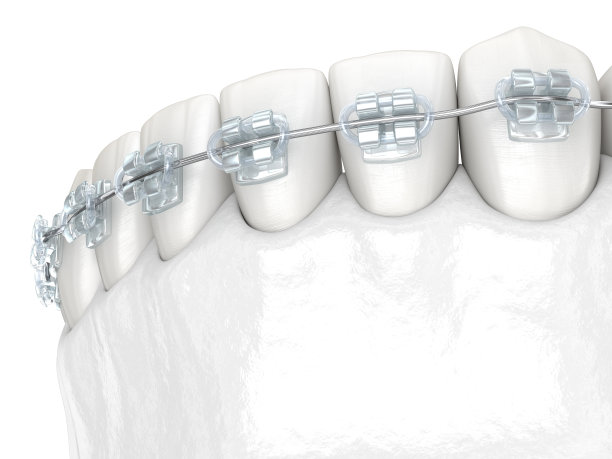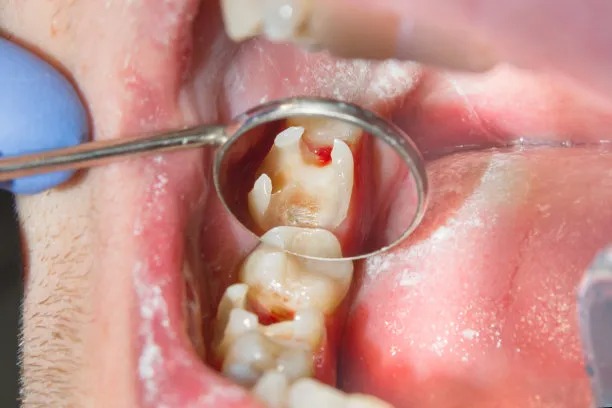Summary: Periodontal disease, a serious oral health issue, can lead to various complications and impact overall well-being. This article delves into the devastating effects of this condition on oral health and highlights the importance of prevention and treatment.
1. Causes of Periodontal Disease

Periodontal disease is primarily caused by poor oral hygiene habits, including inadequate brushing and flossing. Additionally, factors such as smoking, genetics, and certain medical conditions can contribute to its development.
When plaque and tartar build up along the gumline, bacteria thrive and lead to inflammation of the gums. Without proper intervention, this inflammation can progress to periodontitis, causing irreversible damage to the supporting structures of the teeth.
Furthermore, poor nutrition and untreated dental issues can exacerbate the risk of developing periodontal disease, emphasizing the importance of holistic oral care.
2. Symptoms and Progression of Periodontal Disease
It is crucial to recognize the early signs of periodontal disease, such as red, swollen gums, gum recession, and persistent bad breath. These symptoms indicate underlying issues that require immediate attention to prevent further damage.
If left untreated, periodontal disease can progress to advanced stages, leading to tooth loss, bone deterioration, and systemic complications. Regular dental check-ups and screenings play a vital role in detecting and managing the condition effectively.
As the disease advances, individuals may experience increased sensitivity, shifting teeth, and complications in chewing and speaking, significantly affecting their quality of life.
3. Consequences of Untreated Periodontal Disease
The consequences of neglecting periodontal disease extend beyond oral health, impacting ones overall well-being. Chronic inflammation in the mouth can contribute to systemic conditions like cardiovascular disease, diabetes, and respiratory issues.
Moreover, the association between periodontal disease and adverse pregnancy outcomes emphasizes the importance of maintaining optimal oral health, especially for expectant mothers. Understanding the interconnectedness of oral health with systemic health highlights the need for comprehensive preventive strategies.
Untreated periodontal disease not only affects individual health but also poses economic burdens due to the costs associated with advanced dental treatments and managing related health conditions.
4. Prevention and Management Strategies
Preventing periodontal disease involves practicing good oral hygiene, including brushing twice a day, flossing daily, and visiting the dentist regularly for professional cleanings and check-ups. Lifestyle modifications such as quitting smoking and adopting a balanced diet play a significant role in reducing the risk of developing the condition.
For individuals already affected by periodontal disease, comprehensive treatment plans tailored to their specific needs are essential in halting its progression and restoring oral health. This may involve scaling and root planing, antimicrobial therapy, and in severe cases, surgical interventions to address advanced damage.
Educating individuals about the importance of oral health and empowering them to take proactive measures can significantly impact the prevalence of periodontal disease and its associated complications, promoting long-term oral health and overall wellness.
Summary:
Periodontal disease poses a significant threat to oral health, with profound implications for overall well-being if left untreated. By understanding its causes, symptoms, consequences, and preventive strategies, individuals can prioritize their oral health and seek necessary interventions to mitigate the devastating impact of this condition.
This article is compiled by Vickong Dental and the content is for reference only.
Vickong Dental
Vickong Dental is a large medical group established in Hong Kong in 2008 by professors from well-known medical universities in Guangdong and Hong Kong, as well as medical doctors from key national '985' universities (including Master's supervisors and senior professors). The chain of branches brings together expert dentists with PhDs and Master's degrees from Hong Kong and Mainland China, committed to providing high-quality dental treatment.
"Vickong Dental Practices the University Motto of 'Healing and Serving Society,' with a Stable Operation for Sixteen Years. It Has Been honored with Hong Kong Enterprise Leaders's Choice,' and is a Global Trusted Implant Center for the Nobel Implant System. Recommended by Hong Kong Metro Broadcast and Guangdong Television, it Serves Customers from Over Thirty Countries and Regions, Gaining the Trust and Favor of Citizens from the Guangdong-Hong Kong-Macau Greater Bay Area and Surrounding Cities.

Thousands of customers' unanimous praise
The most recognized and highly recommended dental service by customers in the Guangdong-Hong Kong-Macau Greater Bay Area
We Ensure You Receive Detailed Care and Attention Here
Hong Kong standards, Shenzhen prices, Your Trusted English-speaking dentists

Vickong Dental Medical-Grade Instrument Disinfection Process
Vickong Dental Medical-Grade Instrument Disinfection Process

Vickong Dental Chain: A Warm and Comfortable Environment for Treatment






Appointment Hours

Q&A
Why choose Vickong Dental?
Vickong Dental practices the university motto 「Medicine to Benefit Society」, with each branch bringing together highly qualified dentists with doctoral and master’s degrees from Hong Kong and the Mainland, and has maintained seventeen years of steady operation。Recipient of 「2024 Hong Kong Enterprise Leaders Brand」, 「2025 Hong Kong Enterprise Leaders Brand」, a Nobel Biocare Global Trusted Implant Center, and a brand recommended by Metro Radio Hong Kong and Guangdong TV。
To date, we have served customers from more than thirty countries and regions,earning exceptionally high word-of-mouth recognition and trusted recommendations from residents across the Guangdong-Hong Kong-Macao Greater Bay Area and surrounding cities
We have eight major branches in Zhuhai、Shenzhen,and a consultation and service assurance center in Hong Kong,so you can book a free consultation at any time for any questions,which is very reassuring.
If I do not accept the quotation after the CT scan, will I be charged??
No! As long as the actual treatment has not started, you will not be charged any fees.
Will there be any additional charges during the treatment process?
No, there won’t be any additional charges. Before treatment begins, we will clearly explain the treatment plan and its corresponding fees. Only after the patient agrees and signs the consent form will we proceed with the dental service.
Can I pay in Hong Kong dollars?
Yes. Vickong Dental accepts payment in Hong Kong dollars. The amount will be converted based on the exchange rate of the day, and the applicable rate will be clearly communicated to you in advance.
Can I reschedule my appointment at any time?
Yes. Please contact us via **WeChat** or **WhatsApp** as early as possible, providing your original appointment time and details, along with your preferred new date and time slot for rescheduling.













